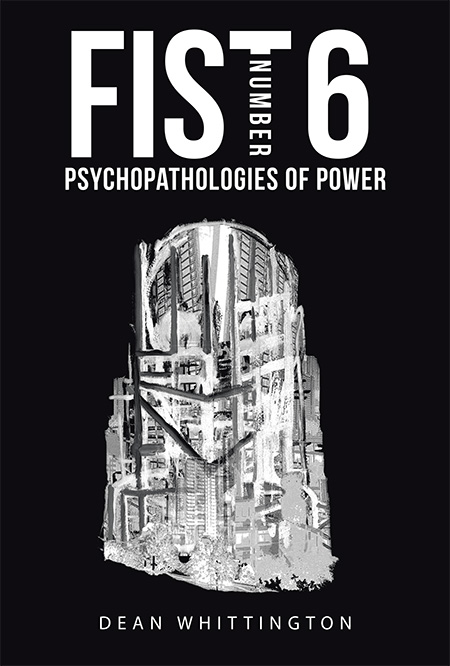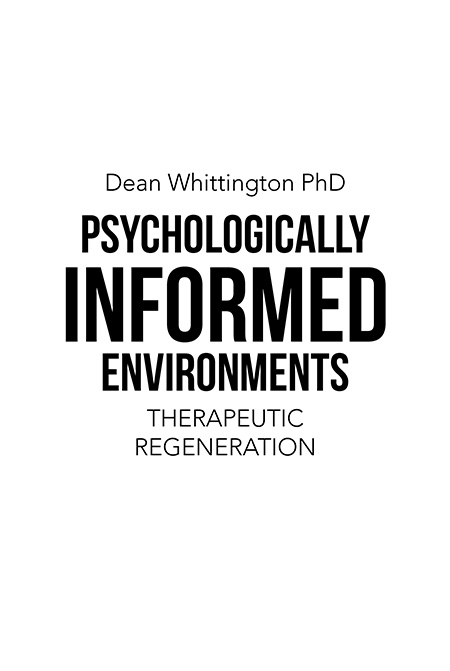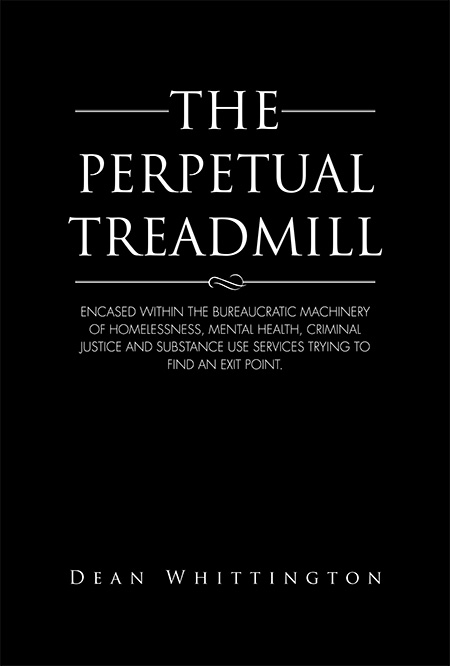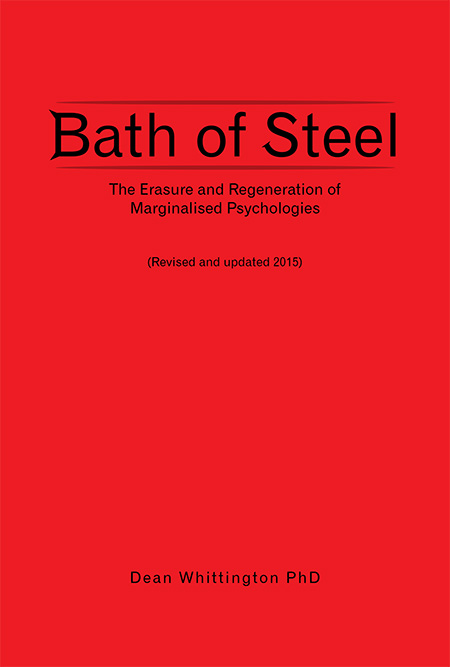Book Overviews
Fist Number 6: Psychopathologies of Power
 Psychopathologies of Power delivers Punk Philosophy with a ribald sneer aimed at the genteel Ponzi schemes proffered within academia; as the real scene is a descent into transgressive literature. By delving into the mire, the insights delivered by De Sade, Kafka, Mishima, Nietzsche, Stirner and Celine are distilled to dissolve the staid ‘natural standpoint’. Philosophy exists in a disconnected bubble severed from lived experience; instead promoting a rarified fantastical illusion. Ideas exist in a land fill; replete with gossamer tropes swopped within an intellectual cattle market; overseen by the Eloi.
Psychopathologies of Power delivers Punk Philosophy with a ribald sneer aimed at the genteel Ponzi schemes proffered within academia; as the real scene is a descent into transgressive literature. By delving into the mire, the insights delivered by De Sade, Kafka, Mishima, Nietzsche, Stirner and Celine are distilled to dissolve the staid ‘natural standpoint’. Philosophy exists in a disconnected bubble severed from lived experience; instead promoting a rarified fantastical illusion. Ideas exist in a land fill; replete with gossamer tropes swopped within an intellectual cattle market; overseen by the Eloi.
The real surge of power exudes in exposing a desire for emotional compensation for childhood humiliation; revealed within the lives of Mishima, Celine and De Sade. It also exists within the bureaucratic maze administered by men and women elevated to process the poor; as exposed by Kafka. Finally, transcendence camouflages numerous potential pitfalls within the work of Stirner and Nietzsche. Each are mined to reveal a collective hallucination composed of imaginary communities providing a mythic cult of solidarity, gluing together a world that lacks ultimate meaning; behold the 21st Century hoax.
Fist Number 7: 4th Surrealist Manifesto
 Fist Number 7: 4th Surrealist Manifesto focuses upon the alchemisation of the self, starting from an eradication of all values and reaching into nihilism, to finding the self and facing the wrath of society, to finally ascend upon a higher plane. It offers a clarion call for cultural revitalization, drawing on the three A’s that melded within the crucible of surrealism: anarchy, alchemy and antinomy. The book then highlights how someone can transcend the modern world and build a community of peers.
Fist Number 7: 4th Surrealist Manifesto focuses upon the alchemisation of the self, starting from an eradication of all values and reaching into nihilism, to finding the self and facing the wrath of society, to finally ascend upon a higher plane. It offers a clarion call for cultural revitalization, drawing on the three A’s that melded within the crucible of surrealism: anarchy, alchemy and antinomy. The book then highlights how someone can transcend the modern world and build a community of peers.
Psychologically Informed Environments: Therapeutic Regeneration
 Psychologically Informed Environments outlines the problems inherent in working with marginal populations, (such as the homeless). The analysis considers the issue of masculinities, and how these are erased within current academic discourses. The key issue is around how emotional recovery is generated using therapeutic techniques based on praxis. It also explores how organizations can be reconfigured to initiate emotional recovery and so stop people moving around the perpetual treadmill. This needs to be undertaken by grounding the client in the present, working on past traumas, those that shape the current lifestyle, whilst thinking about a sustainable future to move into. This involves the therapist moving into the bath of steel the client inhabits.
Psychologically Informed Environments outlines the problems inherent in working with marginal populations, (such as the homeless). The analysis considers the issue of masculinities, and how these are erased within current academic discourses. The key issue is around how emotional recovery is generated using therapeutic techniques based on praxis. It also explores how organizations can be reconfigured to initiate emotional recovery and so stop people moving around the perpetual treadmill. This needs to be undertaken by grounding the client in the present, working on past traumas, those that shape the current lifestyle, whilst thinking about a sustainable future to move into. This involves the therapist moving into the bath of steel the client inhabits.
The book sets out to explore some of the problems arising from past interventions and situating a move to an emotional recovery, by rethinking current practices. It raises considerable questions around training, research and the style of the current set of interventions being undertaken. All should be appraised on whether they generate emotional recovery. This can be viewed by the use of case histories to depict the work undertaken and requires the use of phenomenological methods to detail the work.
The Perpetual Treadmill: Encased within the bureaucratic machinery of homelessness, mental health, criminal justice and substance use services trying to find an exit point.
 The Perpetual Treadmill is a care pathway devised to ensnare the poor within a never-ending treatment system for their “own good,” after they have been labelled with their designated malaise. Once caught within it, similar to Kafka’s “Trial” and “Castle,” they are wedged within its corridors where they are forever signposted between services. This book draws on the analogies of “knights” and “knaves” by building on “Bath of Steel” to focus on how this system has been constructed and then maintained.
The Perpetual Treadmill is a care pathway devised to ensnare the poor within a never-ending treatment system for their “own good,” after they have been labelled with their designated malaise. Once caught within it, similar to Kafka’s “Trial” and “Castle,” they are wedged within its corridors where they are forever signposted between services. This book draws on the analogies of “knights” and “knaves” by building on “Bath of Steel” to focus on how this system has been constructed and then maintained.
To depict its shortcomings, it has been ranged against a psychologically informed perspective (PSIP) to show how those entrapped can eventually exit the “perpetual treadmill.” But there are numerous vested interests which militate against those clients, duly labelled from ever “emotionally recovering.” The interplay between politicians, bureaucrats, academics, practitioners and clients is explored to detail how the poor have become a raw material which feeds this machine.
This book is relevant to psychotherapists, addiction specialists, psychologists, sociologists, criminologists, clinical psychologists, psychiatrists, social workers, social policy experts and nurses.
Bath of Steel: The Erasure and Regeneration of Marginalised Psychologies
 Attachment Theory, the Self Medication Hypothesis and Individual Psychology are brought together to revitalize marginalized men. Bath of Steel shows how therapy validates trauma through building a purpose by finding a meaning to live. This is the psychological escape ladder from chronic depression. Drawing on Frankl, Adler, Stack Sullivan, Bowlby, Khantzian, Winnicott and Fromm, hope is kindled. Then a practical therapeutic team intervention from skilled life builders harnesses this energy to create a custom-built future. This is a psychologically informed environment.
Attachment Theory, the Self Medication Hypothesis and Individual Psychology are brought together to revitalize marginalized men. Bath of Steel shows how therapy validates trauma through building a purpose by finding a meaning to live. This is the psychological escape ladder from chronic depression. Drawing on Frankl, Adler, Stack Sullivan, Bowlby, Khantzian, Winnicott and Fromm, hope is kindled. Then a practical therapeutic team intervention from skilled life builders harnesses this energy to create a custom-built future. This is a psychologically informed environment.
Detailing early traumatic lives through 40 case histories of homeless men Dr. Dean Whittington PhD illuminates the various self-medication strategies used to obliterate memories. Substance use allows these men to negate meaninglessness through creating a psychological withdrawal from the world. Psychologists, psychotherapists, psychopathologists, social policy makers, gender practitioners, criminologists and “addiction” experts will all find this revelatory.
Beaten Into Violence: Anger, Masculinities, Alcohol, Narcotics
 Beaten Into Violence explores the emotional worlds of white working class men and why they self-medicate using heroin, alcohol, crack and amphetamines. It drawn on the therapeutic work that the author undertook in Deptford South East London over a fifteen-year period and highlights how familial, institutional, cultural and historical violence has shaped white working class masculinities in terms of love and violence.
Beaten Into Violence explores the emotional worlds of white working class men and why they self-medicate using heroin, alcohol, crack and amphetamines. It drawn on the therapeutic work that the author undertook in Deptford South East London over a fifteen-year period and highlights how familial, institutional, cultural and historical violence has shaped white working class masculinities in terms of love and violence.
The book transcends current research paradigms drawing on relational theory to move beyond the ‘front’ presented in current social research to look at what emotions have been masked and kept secret. The book then highlights the failure of current stratgies to engage with the defined problem by taking the presenting masculine ‘front’ as an issue to be resolved through discipline
The research draws on Alice Miller, Gitta Sereny, Klaus Thewelait, Jim Gilligan, Deleuze and Guattari to open up new ways of conceptualising violence and addiction relevant to social science researchers, criminologists, psychologists, gender studies as well as the general public.
